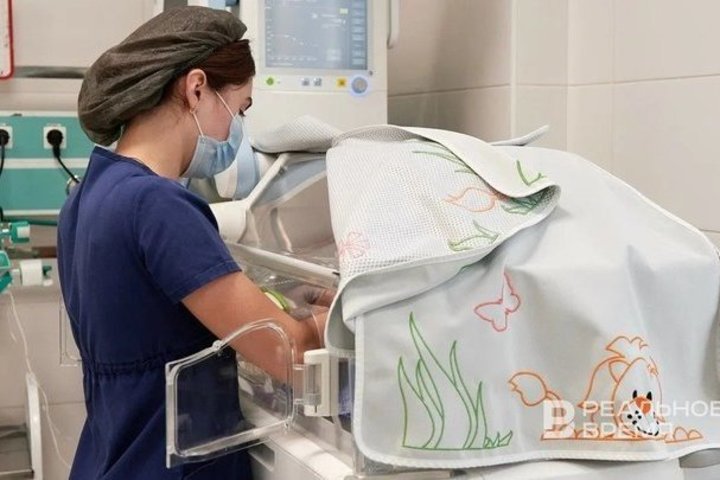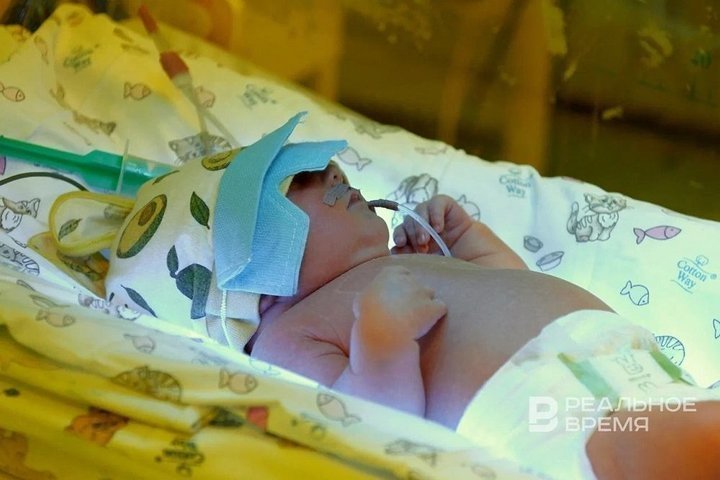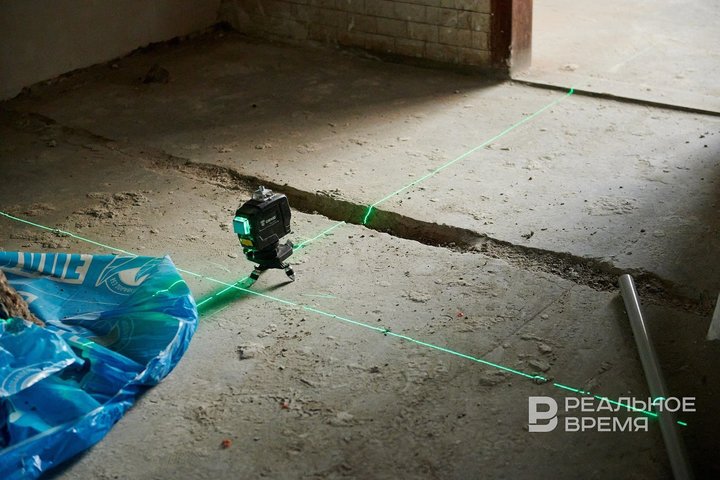Birth rate in Tatarstan falls to 8.8% per thousand residents
At the same time, the republic has the lowest infant death rate

The president of Russia declared 2024 the Year of the Family in order to support state policy in the field of protecting the family and preserving traditional family values. Tatarstan summed up the results of several key topics of the year, including birth rates and reduction of infant mortality as well as the implementation of measures to support large families. Read more about it in a report of Realnoe Vremya.
Demographic indicators
In 11 months of 2024, 32,100 newborns were registered in Tatarstan, which indicates a decrease in the birth rate compared to the previous year. In 2023, the birth rate was 9.1 per thousand residents, while in 2024 this figure dropped to 8.8. The natural population decline in 2023 was — 1.6%, and in 2024 — already 2.5%.
- Statistics on children under one year of age show a significant decrease in the number of newborns: in 2023, 17.7 thousand girls and 18,800 boys were born, and in 2024 — 15,400 girls and 16,800 boys.
At the same time, doctors managed to reduce infant mortality in Tatarstan.
“Infant mortality in the republic shows positive dynamics. Over the past 20 years, mortality among newborns has decreased fourfold. In 2024, it was 2.7% — this is the lowest figure in two decades,” emphasised First Deputy Minister of Health of the Republic of Tatarstan Almir Abashev.

- For comparison, in 2023 this figure was 3.2%, and in 2004 it reached 11.2%.
The Deputy Minister also stressed that among the causes of child mortality aged 0 to 17 years in 2023, the largest number of cases are associated with:
- road accidents (32.6%);
- drownings (15.1%);
- falls (11.6%).
In addition, the effectiveness of pre-abortion counselling within the framework of three-level assistance based on crisis pregnancy centres also shows positive results: in January-November 2024, 56.5% of women refused to terminate their pregnancy after consultations. Meanwhile, this year, 19 private medical organizations refused a license that gives the right to perform abortions.
A wide package of social support measures
The republic is implementing an extensive program of social support for families with children, covering both federal and regional measures. In 2024, significant financial assistance is provided for low-income families.
There are 55,700 large families registered in Tatarstan, the number of which has increased by 2.3 times over the past 12 years. Every fifth child in the republic is raised in them. Among large families, there are those that raise up to 10 children.
Among the republican initiatives is 100% compensation for kindergarten fees for large low-income families, which affects about 3,900 children. Also, families with children under three years old can count on an annual payment of 10,000 rubles for the purchase of medicines, the measure covers 6,200 children. Members of families with five or more children, including disabled children, receive a monthly allowance, the amount of which is determined by the difference between the minimum wage and the average per capita family income (181 people).

“A one-time payment to women living in rural areas at the birth of a child is a unique measure: 50,000 rubles for the first and 100,000 rubles for the third and subsequent children. Since 2018, 14,100 women have taken advantage of this support,” specified Minister of Labour, Employment and Social Protection of Tatarstan Elmira Zaripova.
In 2024, 39% of families with minor children signed social contracts — this is 2,100 contracts, covering about 8,000 people. Large families now have an indefinite status if they have three or more children under 18 or under 23, entitled to education.
Among the most effective measures to support large families are subsidies for housing and utilities (234,800 recipients), medicines for children under six (53,400 recipients) and monthly subsidies for travel for students (69,800 children).
“For families expecting three or more children at the same time, one-time benefits of 10,000 rubles and monthly payments of one thousand rubles up to one and a half years are provided. Large families can also receive housing certificates to improve their living conditions,” Zaripova highlighted.

A new memorable date is planned to be introduced in Tatarstan — Large Families Day, which will be celebrated on 23 January. The draft decree, prepared by the republican government under the leadership of Rustam Minnikhanov, is currently undergoing an anti-corruption examination.
More than 400,000 families in Tatarstan receive maternity capital
Head of the Tatarstan of the Russian Social Fund Eduard Vafin reported that more than 400 thousand Tatarstan families received certificates for maternity capital. This support measure has been in effect as part of Demography national project since 2007 and extended until 2030 at the initiative of President Vladimir Putin.
The amount of maternity capital has increased significantly: from 250,000 rubles to 833,000 rubles in 2024 (630,400 rubles for the first child, with an additional payment of 202,000 rubles for the birth of the second).
According to Vafin, maternity capital funds can be used in five areas:
- improving housing conditions (more than 320,000 families in Tatarstan);
- education of children (more than 48,000 families);
- monthly payments (more than 27,000 families);
- formation of future funded pensions (171 families);
- integration/adaptation of disabled children (three families).
“The improvement of living conditions remains the most popular area,” said Eduard Vafin.

In addition to maternity capital, the SFR branch pays a single benefit for families with children under 17 and pregnant women (more than 231 thousand children, the total amount of payments is 22.7 billion rubles).
The maximum benefit is 12,700 rubles for children and 14,300 rubles for pregnant women. The amount of the payment is determined based on the family's need criteria.
The branch also provides other types of support to families with children, including:
- maternity benefits;
- one-time payment at the birth of a child;
- monthly payment at the birth (adoption) of the first child;
- monthly allowance for childcare up to one and a half years;
- one-time allowance for the transfer of a child to a family for upbringing;
- additional vacation days and monthly compensatory payment for care for families raising children with disabilities;
- support measures for military families and law enforcement officers, as well as families exposed to radiation.